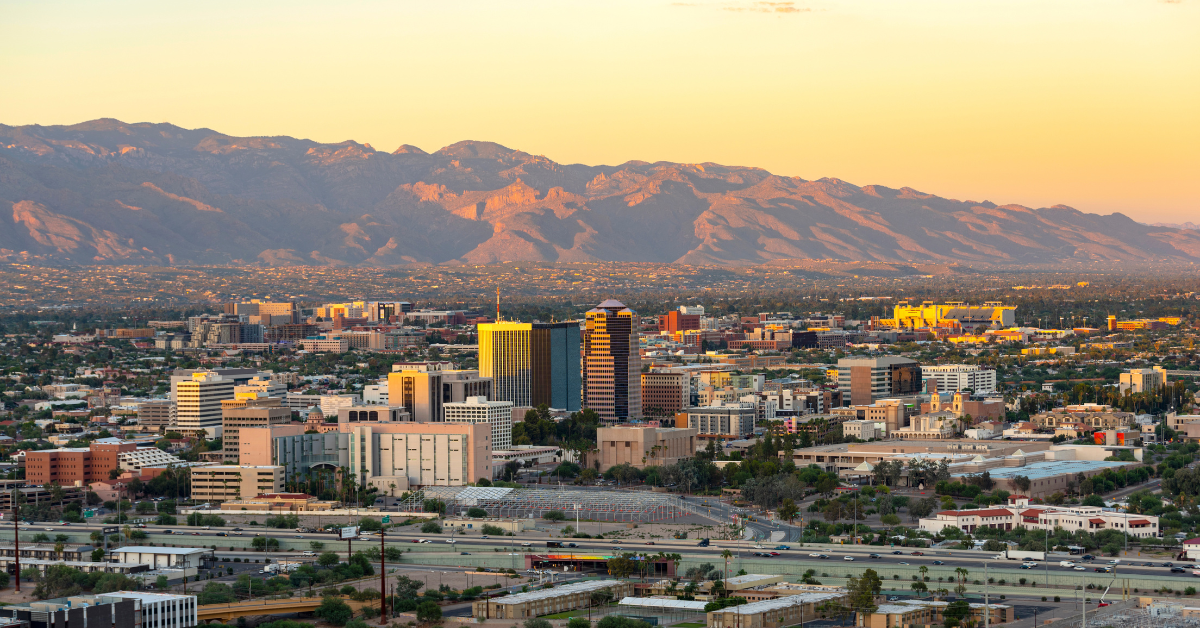Tucson is a major city in Arizona, commonly written in Japanese as “ツーソン.” However, in certain contexts, the phonetic kanji “吐森” is also used. For Japanese people, Tucson is not only known for its vast deserts and iconic cacti but also for its academic reputation and vibrant sports culture. This article explores the city’s diverse appeal in detail.
Tucson’s Written Forms and the Kanji “吐森”
The name Tucson originates from the O’odham language, transmitted through Spanish. In Japanese, the most natural and widely accepted transcription is in katakana as “ツーソン.” The kanji “吐森” is only an ateji (phonetic rendering) and not an official representation.
| Writing Style | Context of Use | Characteristics |
|---|---|---|
| ツーソン | Maps, official documents, travel guides | Standard and most widely used |
| 吐森 | Literary works, cultural expressions | Based on sound only, with little semantic connection |
| Other Kanji | Creative writing, unique usage | Not unified and rarely recognized |
The Natural Image of Tucson for Japanese People
One of Tucson’s greatest attractions is its vast Sonoran Desert landscape. Giant saguaro cacti, arid plains, and clear blue skies leave a strong impression on Japanese visitors. Many feel that “it is like stepping into an American Western movie.” Saguaro National Park, with its iconic cactus scenery, is often remembered as a highlight.
| Natural Feature | Image for Japanese Visitors | Characteristics |
|---|---|---|
| Saguaro Cacti | Like a Western film set | Scale not found in Japan |
| Arid Desert Land | Exotic, out of the ordinary | Strong sun and dry climate |
| Blue Sky and Sunset | Majestic, dreamlike | Ideal for photography and tourism |
Tucson as an Academic City
Tucson is home to the University of Arizona, a world-renowned center for research, especially in astronomy and space sciences. Many Japanese students and researchers come here for exchange, making Tucson known not just as a tourist city but also as a hub of learning.
| Field | Features | Connection with Japan |
|---|---|---|
| Astronomy | Houses world-class research facilities | Japanese researchers participate in joint projects |
| Space Science | Advanced telescope and space observation technology | A popular study-abroad destination |
| Education | A large university with diverse faculties | Many Japanese exchange students enrolled |
Tucson as a Tourist Destination
Tucson also has strong appeal as a tourist city. The Desert Museum allows visitors to observe desert flora and fauna up close, combining nature and education. In addition, exposure to Native American culture makes the city a place of cross-cultural learning for Japanese travelers.
| Tourist Resource | Description | Appeal for Japanese Visitors |
|---|---|---|
| Desert Museum | Exhibits desert animals and plants with educational programs | Popular as an experiential attraction |
| Native Culture | Displays history, crafts, and traditions | Valuable opportunity to learn about different cultures |
| Saguaro National Park | Landscape of giant cacti | Feels like stepping into a film scene |
Tucson as a Sports City
Tucson is also known for its vibrant sports culture. The University of Arizona’s team, the Wildcats, belongs to the NCAA. Men’s basketball is particularly strong, ranking among the nation’s elite, while football games are major community events that fill the stadium with cheering fans.
Thanks to its warm, dry climate, Tucson is also a prime location for baseball spring training, marathons, and training camps. For Japanese people, Tucson is often associated with professional Japanese baseball players who train in Arizona, making the city familiar through sports news.
| Sport | Features | Connection with Japan |
|---|---|---|
| Basketball | University of Arizona team is a powerhouse | Some Japanese fans travel for game-watching |
| Football | Intense college league matches | Occasionally included in sports tour packages |
| Baseball Training | Ideal climate for practice | Japanese pro players hold training camps in Arizona |
The Overall Image of Tucson Among Japanese People
When Japanese people think of Tucson, the following images come to mind:
- Majestic desert and iconic saguaro cacti
- Intellectual atmosphere of an academic city led by the University of Arizona
- Experiential tourism that combines sightseeing and learning
- Energetic sports culture, from basketball to baseball training
Thus, Tucson is perceived not just as a tourist destination but as a multifaceted city that blends nature, academia, culture, and sports.
Conclusion
The kanji form “吐森” is only an ateji (phonetic substitute), not an official representation of Tucson. The proper and widely accepted form is in katakana as “ツーソン.”
For Japanese people, Tucson evokes images of desert landscapes, intellectual pursuits, cultural learning, and vibrant sports traditions. These overlapping impressions make Tucson stand out as more than just a travel destination — it becomes a city remembered for its unique and multi-dimensional charm.






